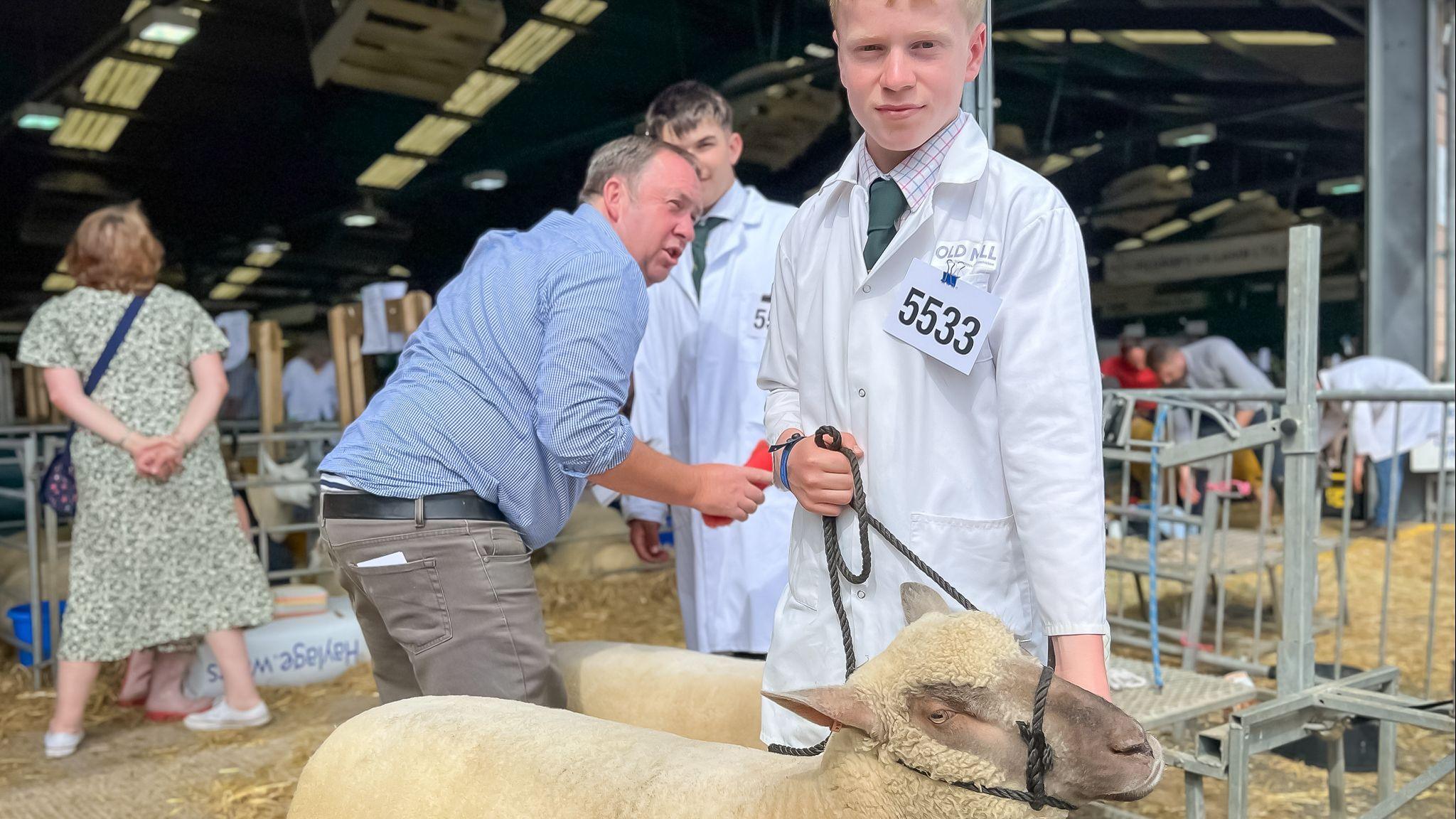Farmer diversifies business to survive
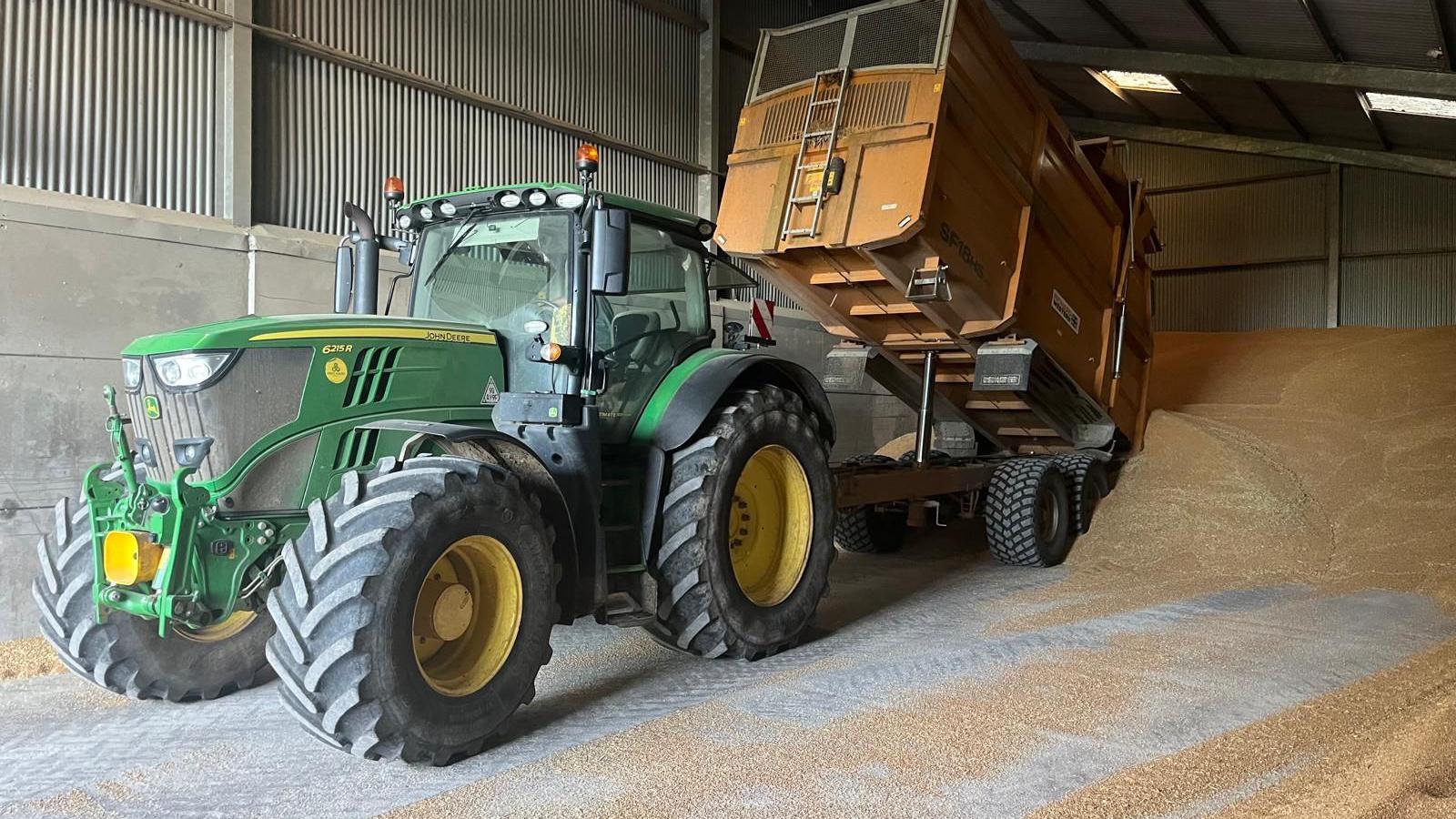
Adam Stratton is still an arable farmer, but has to subsidise his business in other ways
- Published
A third-generation farmer has transformed his dairy and poultry farm into a storage business in response to shrinking profit margins in agriculture.
Adam Stratton, who ran a dairy and poultry farm in Keynsham, Bristol, said that financial pressures forced him to diversify his business.
He has replaced his livestock with storage units, and now leases his former dairy land to a café and farm shop to supplement his income.
"We need a very hard look at how we can futureproof the agricultural industry in this country," he said.
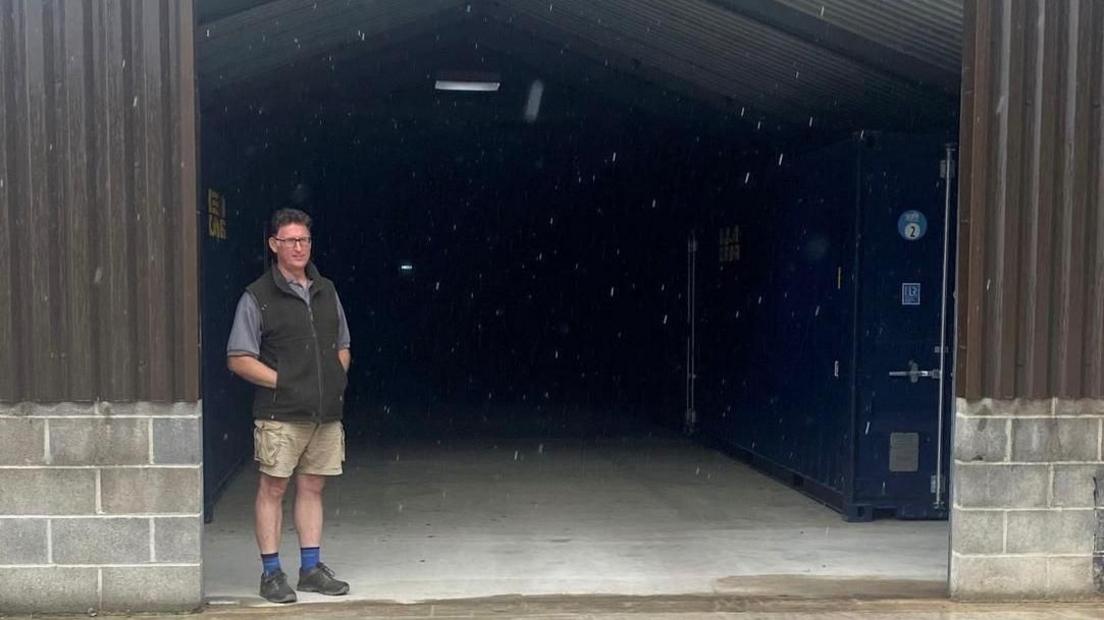
Mr Stratton rents storage space to supplement his income
He added that changes to subsidies following the UK's departure from the European Union have had a significant impact on farmers' incomes.
Mr Stratton expressed concern that smaller family farms are particularly vulnerable and may need to diversify to survive the current farming climate.
He said his family has been farming "for probably 500 years".
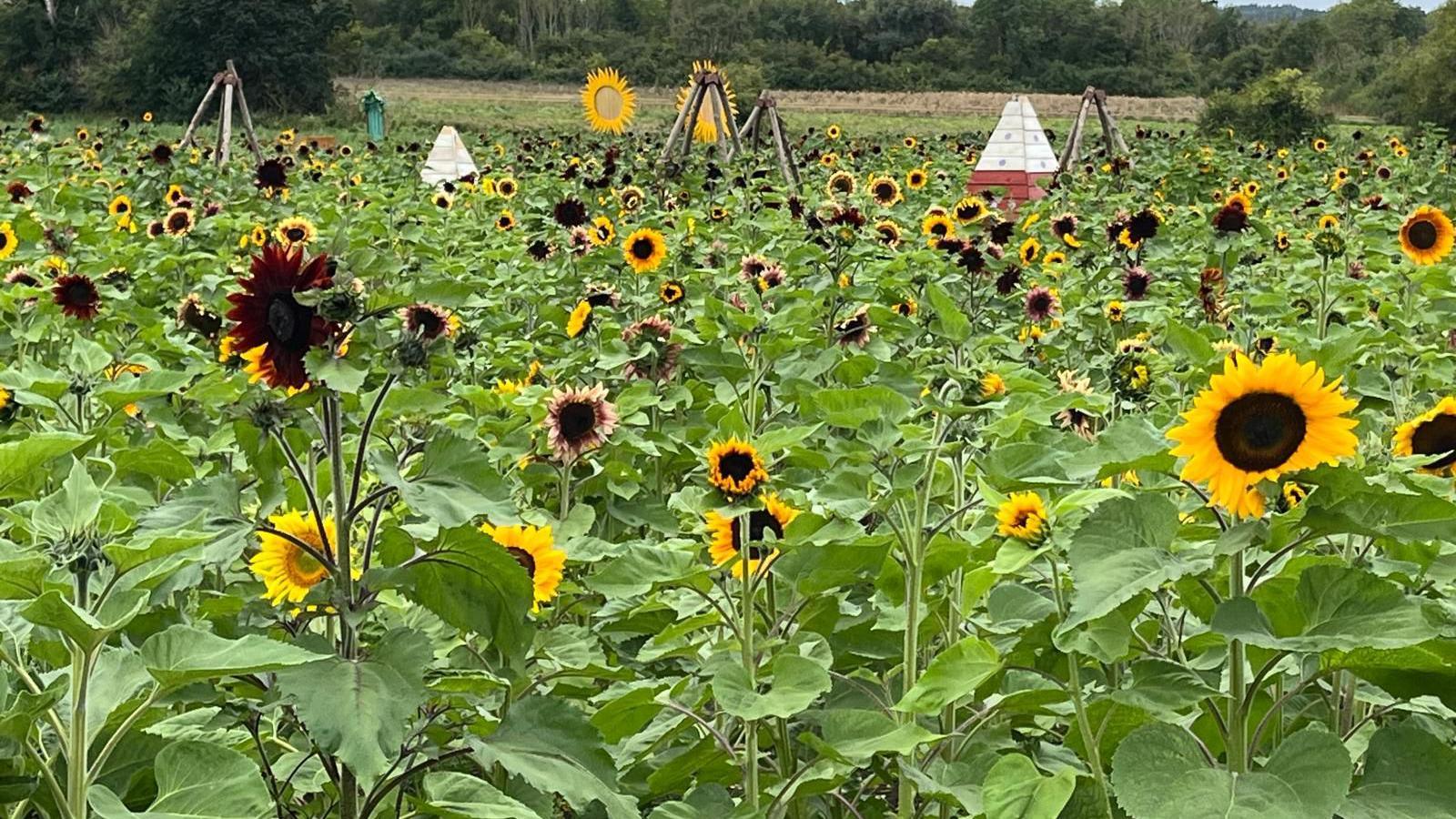
The family also utilise nearby land
In 2002, they sold their cows due to the insufficient income coming from dairy farming.
They focused heavily on egg production instead, but by the end of 2022 they had sold their last hens as well.
To adapt they launched a storage business in their empty barns, which now houses about 30 shipping containers, mostly storing vintage items.
Additionally, they have leased a second site to a business called Flourish, which has opened a farm shop.
The nearby land is home to pumpkin patches, dog-friendly parks and a maze.
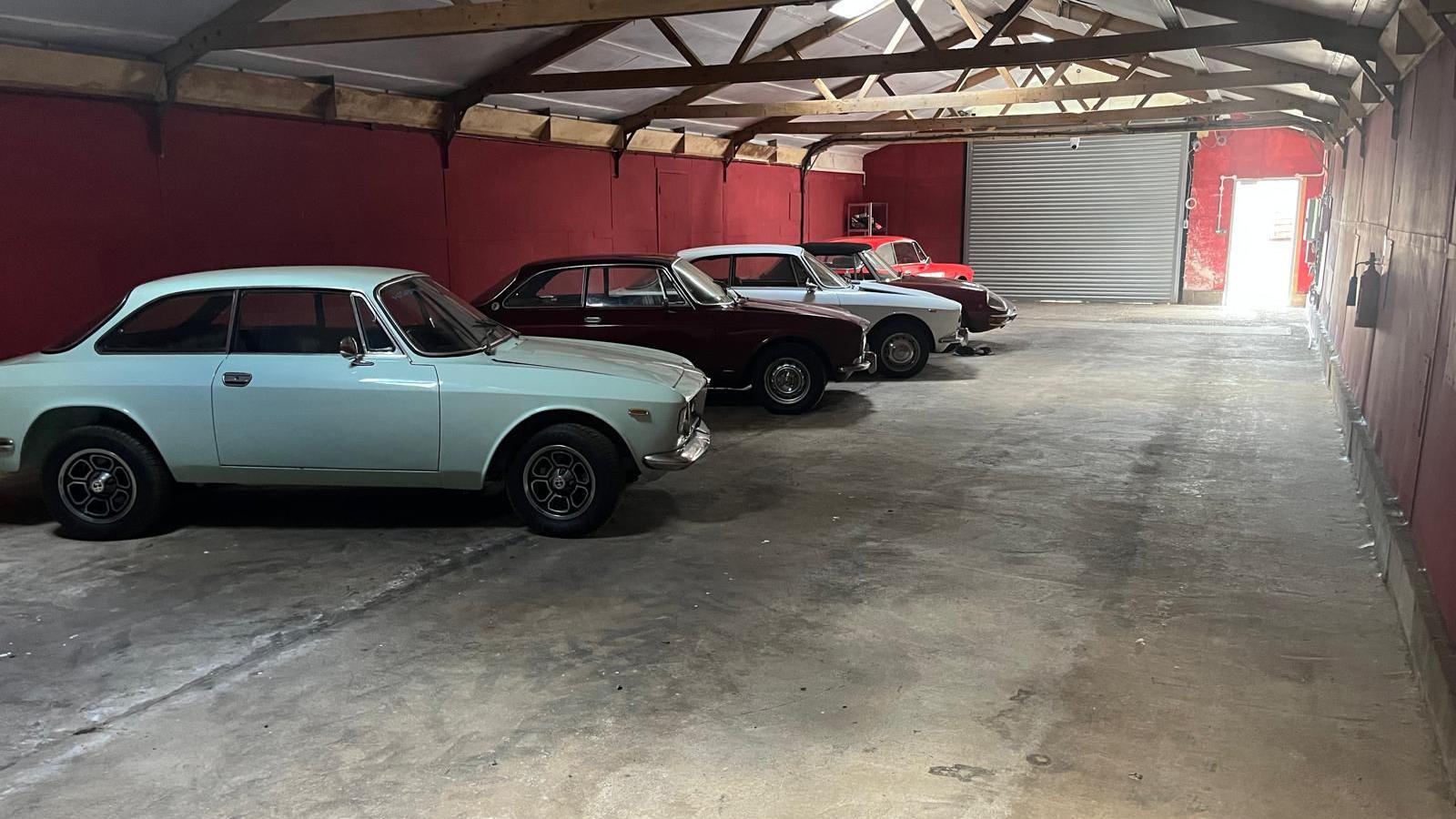
Some of the storage units contain vintage cars
"I've done what I thought was best for my business under the circumstances, but I'd much prefer to be producing food for a profit," he added.
Despite the changes, Mr Stratton remains an arable farmer, cultivating 600 acres of land for cereals and maize.
However, he has no plans to return to dairy or poultry farming.
Get in touch
Tell us which stories we should cover in Bristol
Follow BBC Bristol on Facebook, external, X, external and Instagram, external. Send your story ideas to us on email or via WhatsApp on 0800 313 4630.
Related topics
- Published29 January 2024
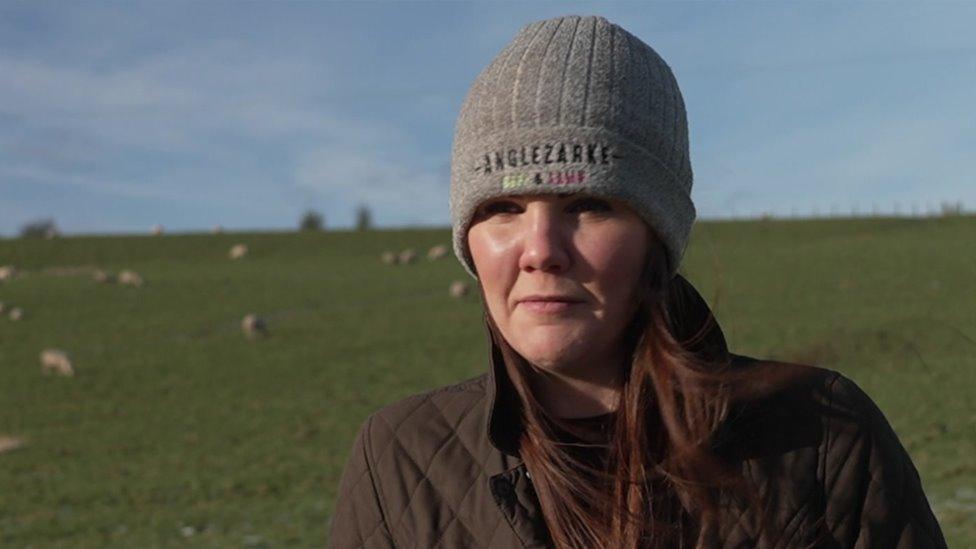
- Published8 August 2024
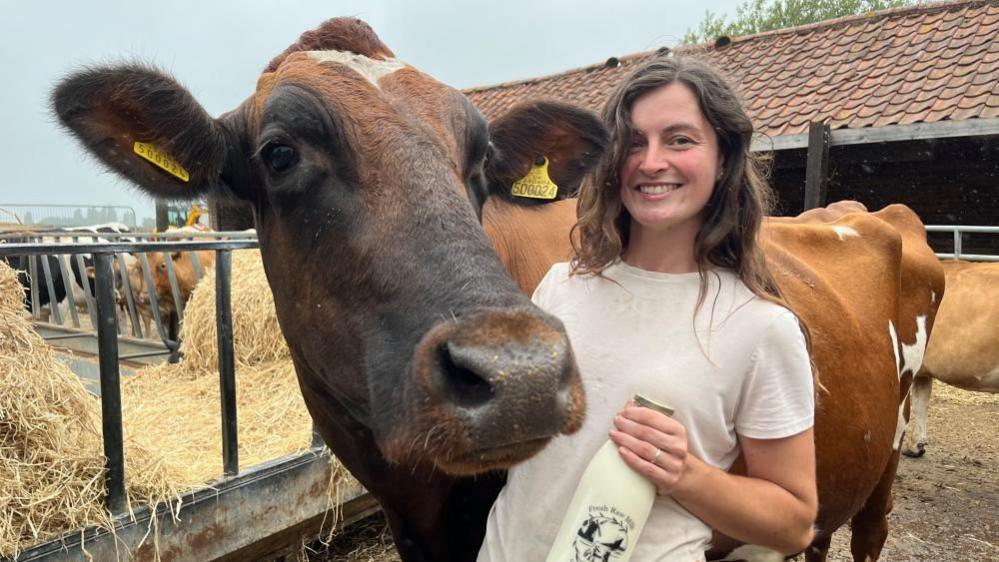
- Published23 July 2024
